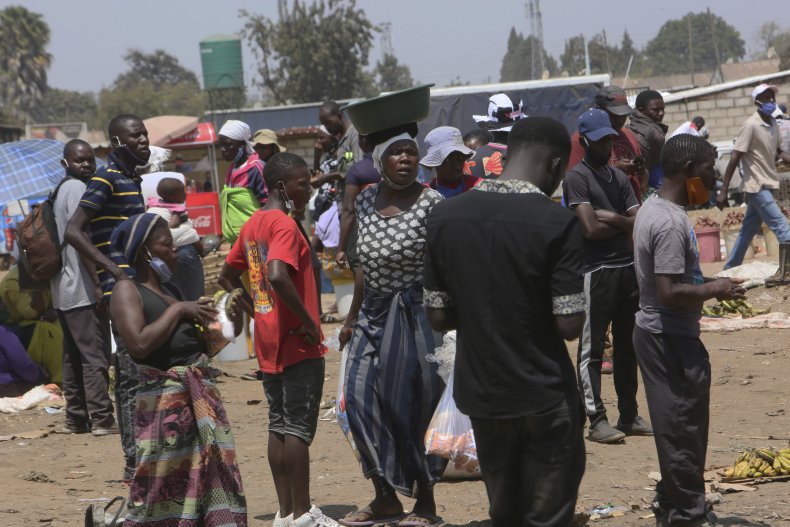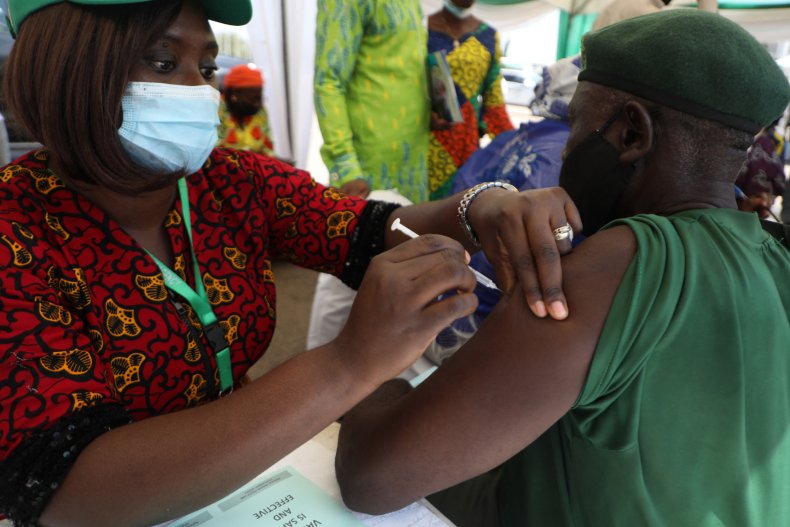For children 12 to 15 years of age, the extremely short and small Pfizer Covid-19 vaccine clinical trial found the overall incidence of severe adverse events which left the children unable to perform daily activities, during the two-month observation period to be 10.7%, or 1 in 9, in the vaccinated group and 1.9% in the unvaccinated group.
Consequently, children who received the vaccine had nearly six times the risk of a severe adverse event occurring in the two-month observation period compared to children who did not receive the vaccine. In addition, the incidence of Covid-19 in the unvaccinated group was 1.6%, therefore, there were almost seven times more severe adverse events observed in the vaccinated group than there were Covid-19 cases in the unvaccinated group.
The above data is partly why the Joint Committee on Vaccination and Immunisation (JCVI), the independent committee that advises the UK Government on Vaccinations, were unable to recommend that all children over the age of 12 should be offered a Covid-19 vaccine. Citing that “the margin of benefit is considered too small to support universal vaccination of healthy 12 to 15 year olds at this time.”
In their statement to the Government released on September 3rd the JCVI stated that “for the vast majority of children, SARS-CoV-2 infection is asymptomatic or mildly symptomatic and will resolve without treatment. Of the very few children aged 12 to 15 years who require hospitalisation, the majority have underlying health conditions.”
However, the UK Government were not happy with this decision, despite the ‘Health Protection (Vaccination) Regulations 2009’ placing a duty on the Secretary of State for Health in England to ensure, so far as is reasonably practicable, that the recommendations of JCVI are implemented (See here – page 6).
So they called upon the four Chief Medical Officer’s for the United Kingdom, which includes Professor Chris Whitty the CMO for England, to reassess the data on vaccinating children and offer their own advise to the Government. As expected Chris Whitty and his colleagues overruled the JCVI citing on September 13th that the ““the most important [decision on recommending vaccination] in this age group was impact on education”.
This raised some serious questions –
- Did Covid-19 close the schools? The answer is of course no. Schools were closed because of Government policy.
- Should a person take a medical treatment so that they are able to partake in society or education? The answer is course no. A person should only ever take a medical treatment for a medical reason, in the case of the Covid-19 vaccine that reason should be to prevent infection and transmission; which it does not do (see here), or prevent illness; which it will not do as children are at such low risk of suffering serious illness due to Covid-19.
The decision by Chris Whitty and his fellow Chief Medical Officers to advise the Government that the Covid-19 vaccines should be offered to children was not a decision based on science, it was instead a decision based on politics.
But have there been any consequences of the decision to overrule the JCVI, whose decisions should be obeyed by law as far as is reasonably practicable?
Well, the latest data from the new UK Health Security Agency, which recently replaced Public Health England shows that up to the day of Chris Whitty’s decision to offer the Covid-19 injection to all children, approximately 6% of children aged between 12 and 15 had received the vaccine. This is because the JCVI had previously recommended that all children over 12 deemed to be “vulnerable” should be offered the jab.
However, since Whitty’s decision on September 13th the UKHSA data shows that only a further 3% of children have received a Covid-19 injection, suggesting most parents have finally said “enough is enough”, and are not going to allow the state to experiment on their children.
There are approximately 3 million children aged between 12 and 15 in the UK, which means approximately 180,000 children deemed vulnerable had received the jab up to September 13th, whilst a further 90,000 children have received the jab since September 13th.
Which is all the more reason to be concerned by the latest data available from the Office for National Statistics (ONS), considering there has been such low uptake of the jab among this age group so far.
The ONS responded to a Freedom Of Information request asking for statistics the five-year-average (2015 – 2019) of ‘Deaths registered weekly in England and Wales’ by age-group. The document can be downloaded here, and accessed on the ONS website here.
The data shows that the five-year-average number of deaths among 10-14 year-olds in week 38 was 6, and was 6 deaths again for week 39.
However, the 2021 edition of ‘Deaths registered weekly in England and Wales’, which can be downloaded here, and accessed on the ONS website here, shows that in the week ending 24th September 2021 (Week 38), a total of 8 children aged between 10 and 14 lost their lives, whilst in the week ending 1st October 2021 (Week 39), a total of 7 children lost their lives.
This means that since healthy children over the age 12 started being given the Covid-19 injection, deaths have increased by 25% against the five-year-average, but this is of course a very small amount of data so it is too early to come to a solid conclusion, but it’s important to publicise this data as it happens, not retrospectively once the damage is done.
However, data available from the ONS on deaths among teenagers aged between 15 and 19 shows does show real cause for concern and there is a substantial amount of it.
We compiled the following table of ONS figures taken from the 5-year-average ONS ‘Deaths registered weekly in England and Wales’ report which can be downloaded here, and the 2021 ONS ‘Deaths registered weekly in England and Wales’ report which can be downloaded here.
The above data is taken from the week ending 25th June 2021 and the week ending 1st October 2021. The week ending 25th June was chosen due to an obvious uptick in vaccination of the 15-19 year0old age group from this date.
As you can see from the above, the highest increase in deaths came in the week 35 which saw a 67% increase on the number of deaths in teens against the five-year-average, this represented a 60% increase in male teen deaths, and a 75% increase in female teen deaths.
The largest increase in male teen deaths came in the week 26 which saw a 90% increase in male teen deaths, but a decrease in female teen deaths, equating to -45% against the five-year-average.
We were also able to discover from the table above that deaths in male teens have seen a significant increase against the five-year-average in 11 of the 15 weeks since a sizeable amount of teens started getting the Covid-19 vaccine.
Whereas deaths among female teens only saw an increase against the five-year-average in 6 of the 15 weeks since this age group began receiving the Covid-19 vaccine. A further 3 of the 15 weeks saw a 0% increase in deaths against the five-year-average, whilst 6 of the 20 weeks actually saw a percentage decrease in the number of deaths registered compared to the previous year. It is however concerning to note that week 34 saw a 125% increase in female teen deaths compared to the five-year-average.
There is also concerning evidence that could explain why there is such a large increase in deaths of male teens against the five-year-average since they started to be given the Covid-19 vaccine.
The Medicine and Healthcare product Regulatory Agency (MHRA) have openly admitted that they suspect myocarditis and pericarditis are potential side effects of the Pfizer and Moderna Covid-19 vaccines, especially among young males. A suspicion that has been strong enough for the UK Medicine Regulator to officially add warnings about myocarditis and pericarditis to the safety labels of the Covid-19 vaccines.
Myocarditis is inflammation of the heart muscle, whereas pericarditis is inflammation of the protective sacs surrounding the heart. Both are extremely serious conditions due to the vital role the heart plays in keeping a person alive, and the fact that the heart muscle cannot regenerate. Serious myocarditis can lead to cardiac arrest and knock years off a persons life.
As you can see above, the MHRA revised the safety lavels for bother the Moderna and Pfizer mRNA Covid-19 injections on the 25th June, the end of the first week in which a sudden uptick in vaccinations of teens began, and the end of the first week that an increase in teen deaths against the five-year-average was recorded. But it was also around the same date daily calls requesting an ambulance due to cardiac arrest also started to rise significantly against the expected levels.
The above graph is taken from the ‘Ambulance Syndromic Surveillance System Bulletin (England) 2021 Week 39’ published by the UK Health Security Agency on the 7th October, and it shows that daily calls made due to cardiac arrest have been significantly higher than the baseline since June 2021.
This is the first time the UK Health Security Agency has published this data, as it was previously published by Public Health England, and as we have found with other data they have conveniently left out important markers that allow us to make more sense of the data, so we’ve included a previous graph on calls requesting an ambulance due to cardiac arrest up to the 26th September 2021, which was published by PHE.
PHE included the data on expected pre-Covid-19 levels as represented by the orange dotted line, and as you can see they have calls due to cardiac arrest have been miles above the expected levels since June 2021. The fact that the UK Health Security Agency have chosen to ommit this data proves that they have something to hide and suggests they are not going to be very open and honest with the public in the future.
The fact that 999 calls requesting an ambulance due to cardiac arrest, and the number of deaths among teenage boys have both seen a significant increase against the expected level, alongside the fact that myocarditis is a confirmed side effect of the Covid-19 vaccines; especially among younger males, is extremely concerning when it can be clearly seen that the increases correlate with the start of a significant amount of teens receiving the Covid-19 vaccine.
The data is there now for the authorities to see, a 20.3% increase in teen deaths, a 27% increase in male teen deaths, and a 9% increase in female teen deaths, as well as a 25% increase in deaths of children against the five-year-average since they started to be given the Covid-19 vaccine. They must investigate this and cease the roll-out of this experimental injection to children immediately.




















